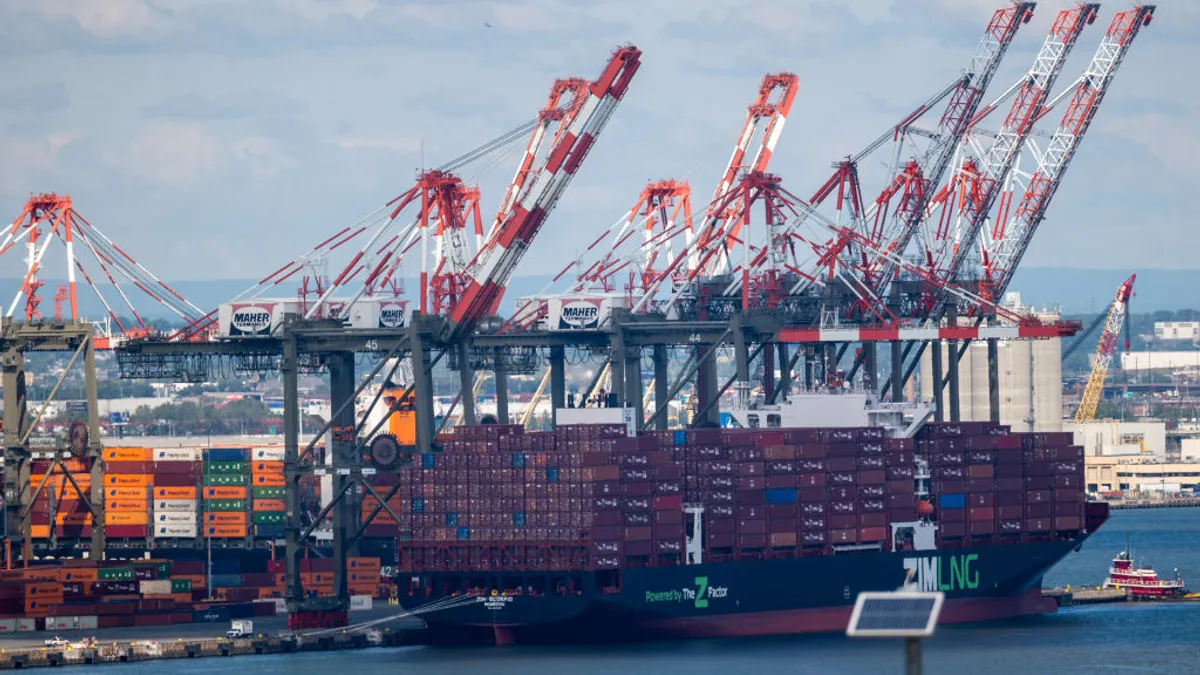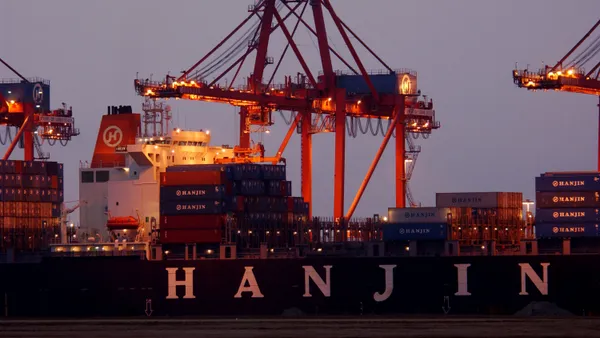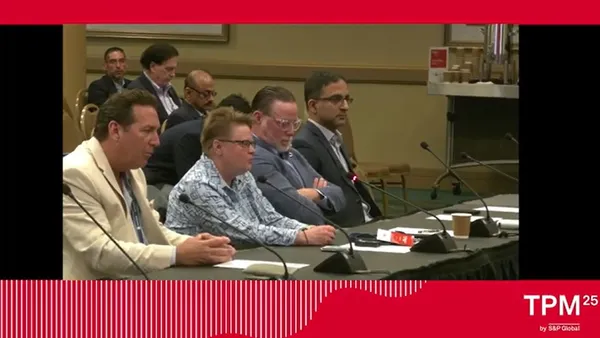A strike across East Coast and Gulf Coast ports was averted last week, but shippers still took action to mitigate potential port closures, lengthening cargo delivery times and elevating volumes in the short term, according to experts.
Before the International Longshoremen’s Association and the United States Maritime Alliance reached a tentative deal on a six-year contract, shippers front-loaded cargo and paused bookings, which will cause hiccups for some supply chains, C.H. Robinson said in a Jan. 9 LinkedIn post. The carrier specifically said to expect delays at certain ports as elevated volumes are worked through.
Because the deal came at the “last minute,” according to a Jan. 10 press release from the National Retail Federation, retailers brought in spring merchandise early to be well-stocked in the event of a strike, increasing import levels.
However, retailers were "judicious" about which products they front-loaded, putting them in a good position to address extra costs created by mitigation actions, according to an NRF spokesperson.
In addition to front-loading cargo, shippers also sourced from secondary supply and shifted a portion of inbound flow to West Coast ports, Brian Pacula, a partner of supply chain at West Monroe, said in an email to Supply Chain Dive. These actions have resulted in increased inventory, longer transit times and higher transportation costs, he added.
“The impact will likely be seen on the balance sheet (inventory) or cost of goods sold (COGS), and it may affect margins and working capital in the short term,” Pacula said.
While a variety of shippers will be impacted by the actions taken ahead of the potential strike, C.H. Robinson said U.S. export reefers and hazmat freight will be more acutely affected by carrier mitigation actions.
“With rail lines already initiating shutdown steps, shippers could see delays as they re-start services,” C.H. Robinson said.
Even without strike concerns, shippers are front-loading additional cargo due to the upcoming Lunar New Year on Jan. 29 and expected tariff increases under the incoming Trump administration. As a result, shippers are facing tightened capacity, Yusen Logistics said in a Jan. 10 customer advisory













